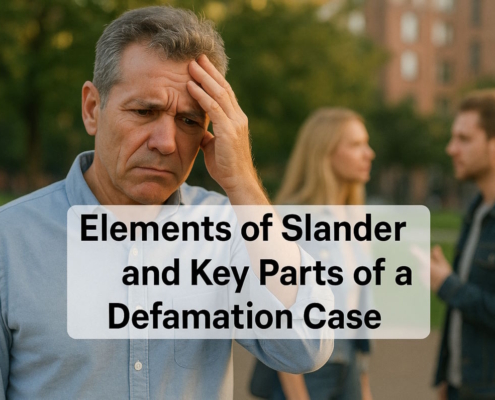What does Section 1954 of the California Civil Code do?
One important regulation that governs the interaction between landlords and tenants is California Civil Code Section 1954, which gives landlords the right to enter rental properties.
Since its enactment in the 1970s, this legislation has worked to strike a fair balance between the rights of renters and landlords regarding admission into rental units. It specifies the permissible grounds, necessary notification, and restrictions on the landlord’s access. However, it also safeguards the tenant’s right to personal privacy.
Read on to learn about the many options open to tenants in the event that their landlord breaches their rights, the amount of written notice that is necessary, the definition of an emergency, and the acceptable times for entrance.
Landlords and tenants can benefit from each other’s open communication and shared understanding of the law.
Section 1954 of the California Civil Code governs the laws of real estate in the state. It deals with the landlord’s authority to enter a rented or leased property in particular.
The legislation limits landlords’ access to rental units to certain circumstances and forbids them from misusing this authority. In addition, unless it’s an emergency, landlords are required by law to give tenants enough warning before entering rental properties.
Furthermore, the legislation is in harmony with the Health and Safety Code’s requirements for completing required repairs or meeting health and safety standards.
The goal of this legislation is to strike a fair balance between the rights of landlords to enter their rental houses and those of tenants to live in peace and quiet.
Landlord Restrictions and Rights
Landlords or their agents have a limited right to access rental units according to Civil Code Section 1954. They cannot get unrestricted access to rental homes at will.
1. Reasons to enter with proper notification
When entering a property for an emergency—like a fire, suspected gas leak, or busted water pipe—landlords are not required to give notice.
Landlords are still required to give tenants a reasonable amount of notice when they need to do maintenance, repairs, or pest control.
Before displaying a property to potential renters or buyers, landlords have a responsibility to give the current resident enough warning. It is possible to provide verbal notification while showing a residence to potential or actual buyers, and then leave written proof inside the property when they enter. With adequate notice, landlords are able to enter to provide the agreed upon services.
2. Justifications for entering without proper notification
Entering a residential unit in a non-emergency manner without the required authorization or notification.
3. Harassing the renter by abusing access permissions
Bringing up the same excuse for a need for access time and time again when there is no legitimate need to do so, or claiming to require entry when there is proof to the contrary or none at all.
4. Entering without permission outside of normal work hours
Tenant rights and obligations
The legislation also specifies the rights and obligations of tenants in relation to the legitimate entry of landlords. When tenants leave or relinquish their properties, landlords have the right to enter.
Entrance during regular business hours
You must be present whenever the landlord enters your house. Entry will only happen during normal work hours unless the renter gives permission for entry to happen after hours. If it’s not an emergency, you can refuse to let a landlord in who wants to enter for unlawful purposes or who doesn’t give you enough warning.
Legal action, such as a lawsuit that may result in damages, may be taken in the event that the landlord commits a legal violation.
Responsibilities of tenants
- Permitting the landlord access upon presentation of appropriate written notice and assertion of a legitimate purpose in accordance with the civil code.
- Allowing a landlord reasonable access to the apartment without unreasonable resistance.
- Allow the landlord access in the event of an emergency, regardless of whether they had adequate warning.
- Cooperating with requests for admission for lawful commercial objectives, such as showing the apartment to potential renters.
Common mistakes and explanations
It is the landlord’s responsibility to clarify and correct any ambiguities caused by sections of the Civil Code 1954 in the lease agreement. A few examples are:
Legally, a landlord must give a tenant a fair amount of notice, usually twenty-four hours, in cases that are not emergencies. But “fair notice” might imply various things to other people. If you want to make sure nobody gets confused, give them plenty of notice before you come over. You may either hand deliver the message or put it wherever a normal person would find it, like their front door.
Regular business schedule: The hours of 8 AM to 5 PM on weekdays are considered suitable for entry. No landlord has the right to demand late-night or weekend access. However, landlords have the right to enter the property outside of regular business hours with the tenant’s approval.
Harassment and persistent behavior: The law may see the landlord’s actions as harassment if they enter for an unlawful purpose or make repeated requests.
What is an emergency situation? Landlords want quick access to units in case of emergencies. Having the lease agreement spell out exactly what problems need immediate attention without reasonable warning will help keep disagreements over emergencies to a minimum.
Conflict avoidance and resolution
Landlords and renters alike have recourse to certain measures in the event that disagreements emerge due to misinterpretations of Civil Code Section 1954. It is important for landlords to provide specific details when giving notice, such as the date, anticipated time, and purpose of the access, in order to avoid any confusion.
In addition to educating tenants on the grounds for legitimate access, landlords should give them a copy of the code with their lease agreement.
Make sure to provide plenty of warning, preferably at least 48 hours. Notification must contain the entry’s intended use, as well as the date and estimated time.
If you need to do any agreed-upon repairs, decorations, adjustments, or upgrades to the house, you need to communicate about it quickly and explicitly.
Make an emergency claim only if you really must enter the unit immediately.
Renters should familiarize themselves with the legislation by reading the code and asking landlords any questions they may have.
When the landlord follows the correct protocols and gives reasonable notice, you should cooperate appropriately with any agreed upon or required services.
If you have concerns about the frequent requests for planned visits, it is best to voice them kindly and in writing. This will leave written documentation in case the difficulties remain and you need to consult an attorney.
To keep access issues at bay, be sure you’re following all of the lease’s requirements.
Keeping the peace: useful advice for landlords and renters to get along
Both sides may help create a peaceful living space by learning and adhering to the rules outlined in California Civil Code Section 1954. Landlords and tenants alike might benefit from having a thorough awareness of this law in order to avoid confusion and conflict while gaining access to their properties.






























